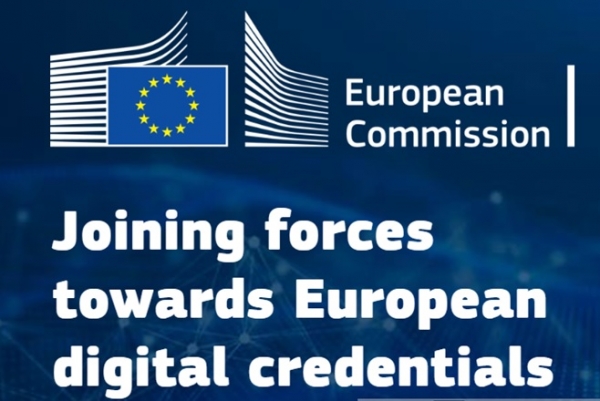EU joins forces towards European digital credentials
The European Commission fosters the digital credentials, using open standards (Verifiable Credentials), to help public administrations accelerate the creation of trustworthy cross border digital services.
Its document Joining forces towards European digital credentials describes the opportunities and advantages of the initiative and the following information:
- Its infrastructure, European Blockchain Services Infrastructure (EBSI), first EU-wide blockchain infrastructure, which began being operational in Q1 2020.
- Verifiable Credentials (VC) standard.
- Digital wallets, self-sovereign identities (SSI) and the European Self Sovereign Identity Framework (ESSIF) standard.
- User seamless experience, explaining in detail the process followed by a cross border university student, involving three countries, its public administrations and two universities (Eva Journey).
- An incubator, Early Adopters Programme, to facilitate the adherance of administrations, universities, providers and other stakeholders. The programme has set up the specifications EBSI compliance, in particular the required ones in the digital wallets and its APIs, to ensure interoperability.
Currently, as of 30 November 2021, the situation is:
- 29 countries are participating in the European Blockchain Partnership, that supports the initiative,
- 38 blockchain nodes in 21 countries,
- 18 universities participating in a multi-university pilot, in 15 countries.
SmartDegrees has adhered to this European initiative, incorporating the Verifiable Credentials standard in its clients since July 2020, and is participating in the Early Adopters Programme to ensure that SmartDegrees wallet takes full advantage of the value of this ecosystem in favor of the universities and the final users.
Related posts: «El viaje de Eva”: Integración de la identidad digital por los gobiernos europeos, gracias a la tecnología blockchain, Europa prepara su identidad digital soberana blockchain, Despega la blockchain de las administraciones europeas
